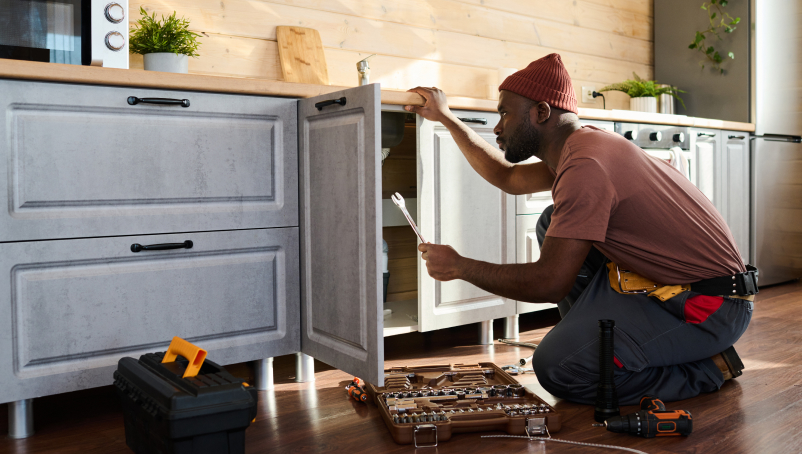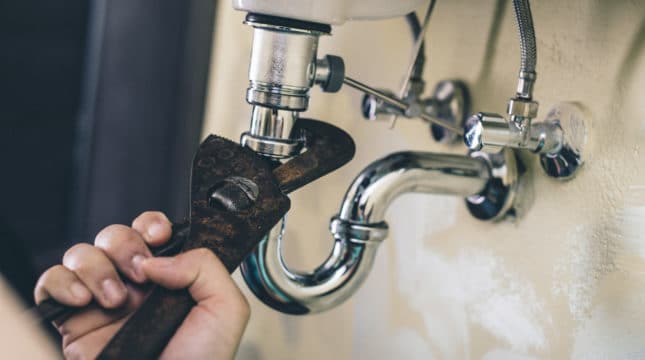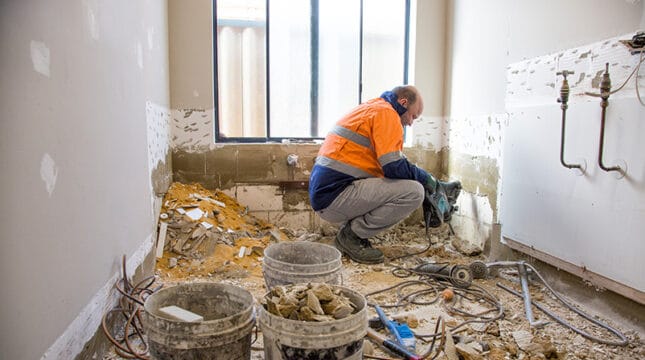Do you need a plumbing license in Illinois?
Illinois requires plumbers to be licensed. The Illinois Department of Public Health (IDPH) manages licensure to make sure plumbers are well-trained and follow safety standards. Individuals who plan, examine, install, alter, extend, repair and maintain plumbing systems in the state of Illinois are required to be licensed.
If you’re thinking about getting an Illinois plumbing license, the journey begins as a licensed apprentice, where you’ll work alongside a licensed plumber to learn the ropes. Unlike other states, Illinois does not have specific licenses at the journeyman plumber or master plumber level. Being a “licensed plumber” indicates that an individual is skilled enough to work independently and has completed their apprenticeship.
However, you can become a licensed plumbing contractor and run your own business or work as an irrigation contractor to install and maintain lawn sprinkler systems.
Insurance requirements for an Illinois plumbers license
Business insurance is key for Illinois plumbers to protect themselves and their businesses, whether working independently or running a larger operation. Here’s a breakdown of the main types of plumbers insurance to consider:
Workers’ Compensation insurance
If you hire other workers, workers’ compensation insurance is a must in Illinois. This coverage helps with medical expenses and lost wages if an employee is injured on the job.
As an employer, you’re required to carry $500,000 in workers compensation. You must submit an Affidavit of No Employees if you don’t employ workers.
Learn more about workers’ compensation for contractors.
General Liability insurance
General liability insurance is something you must have as a plumbing contractor in Illinois. If a repair goes wrong or an installation damages a customer’s property, this insurance can help cover the costs.
If you are a plumbing contractor, you must carry general liability insurance. The coverage minimum includes: $100,000 per occurrence, $300,000 for bodily injury and $50,000 for property damage.
Learn more about general liability insurance for contractors.
Commercial property insurance
If you operate from a physical location, commercial property insurance helps protect your office, equipment, and inventory from damage caused by fire, theft or natural events. This coverage can include your building structure, products and inventory, furniture and the equipment that you use for work.
Business Owner’s Policy
A business owner’s policy, or BOP insurance, provides broad coverage of general liability and commercial property policies combined in a cost-efficient bundle. That means it can help cover damage that you or your employees may accidentally cause to another person’s property and help protect your business inventory in the event of a fire or other covered event.
Tools and equipment insurance
If your work gear gets damaged, lost, or stolen, tools and equipment insurance can help replace your items quickly. It can get you back to work and help you avoid costly delays.
Commercial auto insurance
Commercial auto insurance steps in to handle accident-related expenses if you’re in a crash on the way to a job site.
Illinois requires drivers to have the following minimum coverage amounts:
- $25,000 for each person in an accident;
- $50,000 for all persons in any one accident; and
- $20,000 for property damage to another person.
How to get a plumbing license in Illinois
Getting an Illinois plumber’s license starts with becoming a licensed apprentice. This involves following steps to become eligible for the state exam. Before you can apply for a plumbing contractor license, you’ll need:
- 2+ years of high school (or equivalent)
- 4+ years of work experience as an apprentice
- Successful completion of a plumbing program
It’s important to know that some cities have their own requirements. For example, Chicago plumbing licenses are available through the Board of Plumbing Examiners. The city accepts state-issued licenses as long as your employer has a City of Chicago plumbing contractor license.
Here’s a step-by-step guide to help you along the way.
Begin as an apprentice plumber
The first step is to register as an apprentice plumber. You’ll need to be at least 16 years old and fill out the Apprentice Plumber’s License Application. You also need to find a sponsor — a licensed plumber or an approved apprenticeship program can sponsor your application.
You’ll send your application, passport-style photo, and $100 fee to the IDPH Plumbing Program in Springfield.
Meet the education and experience requirements
You’ll spend four to six years learning the trade hands-on while working under a licensed plumber’s guidance as an apprentice.
You’ll also need to have two years of high school (or equivalent) under your belt and finish a course through a trade school or community college.
Apply for the Illinois plumbing exam
Your next step is to apply for the exam by filling out the Plumber’s License Application for Examination. Make sure you send it in at least 30 days before your exam date and include the $175 application fee.
If you don’t pass the exam on your first try, you can retake it. Just fill out the Plumber’s License Examination Retake form and send it to the IDPH, along with another passport-style photo and the $175 retake fee.
Additional licensing for plumbing contractors and irrigation specialists
If you plan to work as a plumbing contractor (performing work for others) or as an irrigation contractor (installing lawn sprinkler systems), there are a few extra steps to keep in mind.
First, both plumbing and irrigation contractors must have a $20,000 bond. Additionally, each type of contractor has specific requirements:
How long does it take to get licensed as a plumber?
How to get a plumbing license in the state of Illinois is just one part of the equation. You’ll also need to plan for the time it takes to make it happen.
Luckily, getting started as a plumbing apprentice is a quick process. Once you apply, you can work in the field right away. But you’ll need to spend at least four years as an employee of a licensed plumber — plus meet the education requirements — to be eligible to take the exam for an Illinois plumbing license.
There is a cap on the apprenticeship period of six years. This means that after six years as an apprentice, you’ll need to apply for the plumbing license exam. Otherwise, your apprentice license won’t be eligible for renewal.
Illinois plumbing license renewal
Licensed plumbers must complete four hours of continuing education annually to renew their licenses.
The renewal deadline for licensed plumbers in Illinois is April 30 each year, so mark your calendars. The IDPH online renewal page is where you go to renew. You’ll log in, confirm your details, and pay the renewal fee.
Reciprocity for plumbing licenses in Illinois
Illinois doesn’t have formal reciprocity agreements for plumbing licenses with other states. If you’re an out-of-state plumber with an out-of-state license, you’ll still need to apply as a new plumber in Illinois and meet the same requirements as local applicants.
However, Chicago recognizes plumbing licenses issued by the IDPH. With Illinois plumbing license verification, you’re also qualified to work in Chicago. Just make sure your employer has a City of Chicago plumbing contractor license since it’s a requirement for any plumbing work within city limits.





